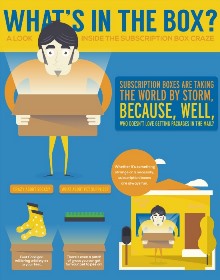Imagine you’ve just won $ 1 million from Publishers Clearing House. And now they want to arrange a time to give you a giant check on national TV.
Too bad they had your phone number wrong….so now someone else gets this life-changing prize.
Wouldn’t that be terrible?
Well, that’s analogous to what happens when there’s conflicting information about your business online.
Your name…phone number…address…and all your other contact information should read the same, whether that information is coming from Yelp, your local BBB, Google Places or any of the hundreds of other Internet business directories.
If your business data isn’t consistent, then your would-be customers could well get frustrated by the confusion and call your competitors.
What’s even worse is that Google, Bing and all the other search engines can penalize you for these conflicting listings by ranking your competitors above you.
(Like your potential customers, they hate it when your business listings are inconsistent.)
What happens is search engines like Google scan the web for all kinds of data on your business, including contact information, your web address and business name.
Then it compares that information to other data sources, including some you may not have considered (like government entities).
If Google finds your business information isn’t consistent, you stand a good chance of suffering in its search engine rankings.
That wouldn’t be good for your business, would it?
Fortunately…
You CAN Fix Your Online Business Contact Information
The first step is to see if you actually have conflicting online information about your business (unfortunately this is likely, as 75% of all U.S. companies suffer from inconsistent data).
The easiest way to do this is to go to one of the many online data management services that will run a free report on your business. These reports will tell you if your contact information is consistent throughout the web, and if not, exactly where the inconsistencies are.
Let’s say you do that, and let’s further say you discover that on one directory you have a phone number, and on another directory your phone number’s different.
Or maybe you see the addresses don’t match, perhaps from a company move several years ago.
Or maybe you spelled out the word “street” on one directory, while on another directory it’s abbreviated.
The obvious answer in any of these cases – you’d think – is to simply go to the directory that’s got the wrong information and correct it.
While that’s not a bad idea, you have to do this a certain way or you’ll be wasting your time.
This effort can be time-consuming. In fact, it typically takes about 10 minutes to update each directory listing for your business.
And since there are about 50 main directories online, that time can really add up.
Let’s say you do updates on all 50. That’s 500 minutes – about 8.3 hours!
But here’s the worst part…
Those Bad Directory Listings
Can Pop Up Again Like Whack-A-MoleDespite spending hours correcting your business information on the web, that bad data can pop right back up again.
See, all those directories swap information with each other, which makes it easy for bad data to spread like a virus.
And even if you update your business information on every directory out there, bad data can still pop up to bite you…even from the site you personally updated.
It’s like playing Whack-A-Mole.
That’s because there’s a hierarchy of online repositories for business data, and to fix bad data you have to attack them in order of that hierarchy.
Local business data aggregators are at the top of the heap.
They include InfoGroup, Factual, Acxiom and Neustar Localeze – the four main aggregators in the U.S. All of them use software to combine business information from different online sources for reuse and resale.
So if the data they have for your business isn’t accurate, an authoritative directory like Yelp or Yahoo can swap out the correct data you spent all that time inputting for old, incorrect information.
And lesser directory sites like Yellowpages.com or CitySearch can get bad data from these higher level directories.
So clearly, your first step is to go to the four business data aggregators and update your information there. This will take about 20 minutes per aggregator, so it’ll cost you about 80 minutes of your time.
But, unlike most directories, it will cost you money as well – $ 297 for Neustar Localeze.
So let’s say you went through all that time and money.
You’d be home free right?
Not quite. There’s one more thing to consider…
You Should Track All Aggregators and Directories to Ensure Your Contact Information Stays Correct
Even though you went through all this work to update your contact information on all these directories, there’s still a chance bad data could pop back up again.
That’s because sometimes a data aggregator finds conflicting information about you from a different source…which in turn means that bad data could resurface on sites within that aggregator’s network.
The only way to keep that from happening – or minimize the odds of that happening – is to periodically revisit your aggregator listings to make sure they remain accurate.
Of course, you could hire a data management service to do that for you. And while that will cost you a little money, you’ll get peace of mind knowing that your listings are being monitored and updated as needed.
That way you can concentrate on growing your business.
Here’s one final thought. Many data management services will also submit your information to a slew of other little-known directories as part of their overall fee.
At last count, there were over 1,600 of them in the U.S.
Being listed in them all can’t help but make more people aware about your business.
And isn’t that what you want?
———-
If your business has conflicting contact data on the web, you could be driving potential customers to your competitors. Don’t let that happen – find out if your online contact information is consistent with a free demonstration at FixMyInfo.com
Business & Finance Articles on Business 2 Community(19)





